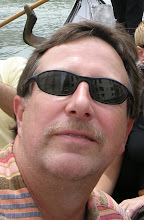● Stability: Scuppers and freeing ports clear. Seating, deck gear, and hatches secured. Vessel tanked to reduce free surface effect (fuel and water not freely moving in tank).
● Distress Signals, EPIRB, and Radiotelephone Distress Communications: Communicated equipment tested for proper operations. EPIRB tested, armed, and mounted properly. Carry back-up communication gear.
Pyrotechnic Distress Signals 46 CFR 180.68 – 175.120
· Pyrotechnic distress signals are required on all passenger vessels. Pyrotechnic signals are marked with an expiration date (42 months from date of manufacture) and must be replaced at the first COI or re-inspection after the date the flare has expired.
· Vessels on Lakes, Bays and Sounds, or Rivers routes are required, 3 hand red flare distress signals.
· Vessels on Oceans or Coastwise routes are required to carry, 6 hand red flare distress signals.
· The flares are required to be stored in a portable watertight container of bright color.
· As an alternative the signals may be stored in a pyrotechnic locker located above the freeboard deck, away from heat, in the vicinity of the operating station.
Radiotelephone Message:
The international hailing and distress radiotelephone frequencies are VHF Channel 16 (156.8 mHz) and SSB 2182 kHz. When using SSB, the mandatory silent periods for distress calling are three (3) minutes on the hour and on the half hour. Any message prefixed by one of the following pro-words concerns Safety. If you receive a message beginning with one of them pay particular attention and if possible write it down. Always allow at least 1 minute for a coast station to reply before responding.
The U.S. Coast Guard offers MF/HF radiotelephone service to mariners as part of the Global Maritime Distress and Safety System. This service, called digital selective calling (DSC), allows mariners to instantly send an automatically formatted distress alert to the Coast Guard or other rescue authority anywhere in the world. Digital selective calling also allows mariners to initiate or receive distress, urgency, safety and routine radiotelephone calls to or from any similarly equipped vessel or shore station, without requiring either party to be near a radio loudspeaker. DSC acts like the dial and bell of a telephone, allowing you to "direct dial" and "ring" other radios, or allow others to "ring" you, without having to listen to a speaker. New VHF and HF radiotelephones have DSC capability. On February 1, 1999, the Safety of Life at Sea (SOLAS) Convention, a treaty document, required all passenger ships and most other ships 300 grt and larger on international voyages, including all cargo ships, to carry DSC- equipped radios. Ships were allowed to turn off their 2182 kHz radio listening watch on that date. The International Maritime Organization has postponed indefinitely plans to suspend this VHF watch on ships. It had originally planned to suspend this watch on February 1, 2005.
MAYDAY
Means that a ship, aircraft, other vehicle or person/s is in grave and imminent danger and requires immediate assistance.
MAYDAYRELAY
Means that the calling station is passing on a message from a ship, aircraft, other vehicle or person/s in grave and imminent danger and requires immediate assistance.
PAN-PAN
Means that the calling station has an urgent message concerning the safety of a ship, aircraft, other vehicle or person/s.
PAN-PAN MEDICO
Means that the calling station is in need of medical assistance or advice.
SECURITE
Means that the calling station has a message concerning the safety of navigation or giving important meteorological warnings.
The following pro-words will be transmitted if you disturb the transmissions during a distress situation
SEELONCE MAYDAY
Means that the controlling station, in a distress situation is telling you to begin and maintain radio silence. On receipt of this message you must cease transmissions.
SEELONCE DISTRESS
Means that a ship station (that may be involved in a distress situation) is telling you to begin and maintain radio silence. On receipt of this message you must cease transmissions.
Subscribe to:
Post Comments (Atom)




No comments:
Post a Comment